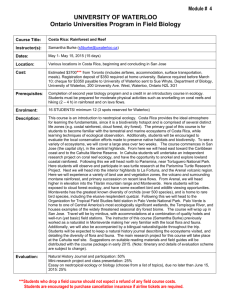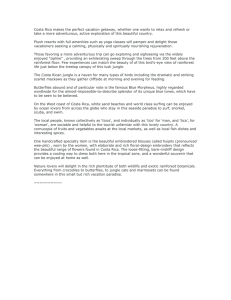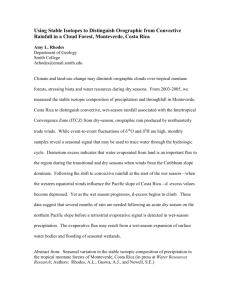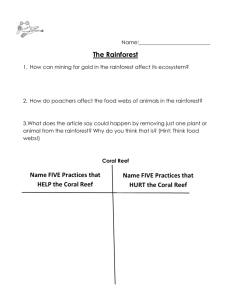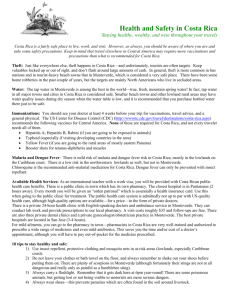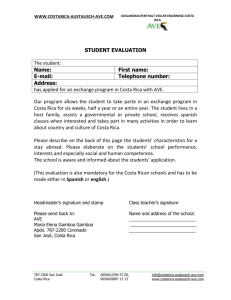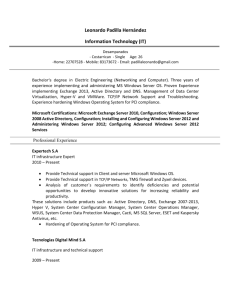UNIVERSITY OF WATERLOO Ontario Universities Program in Field
advertisement
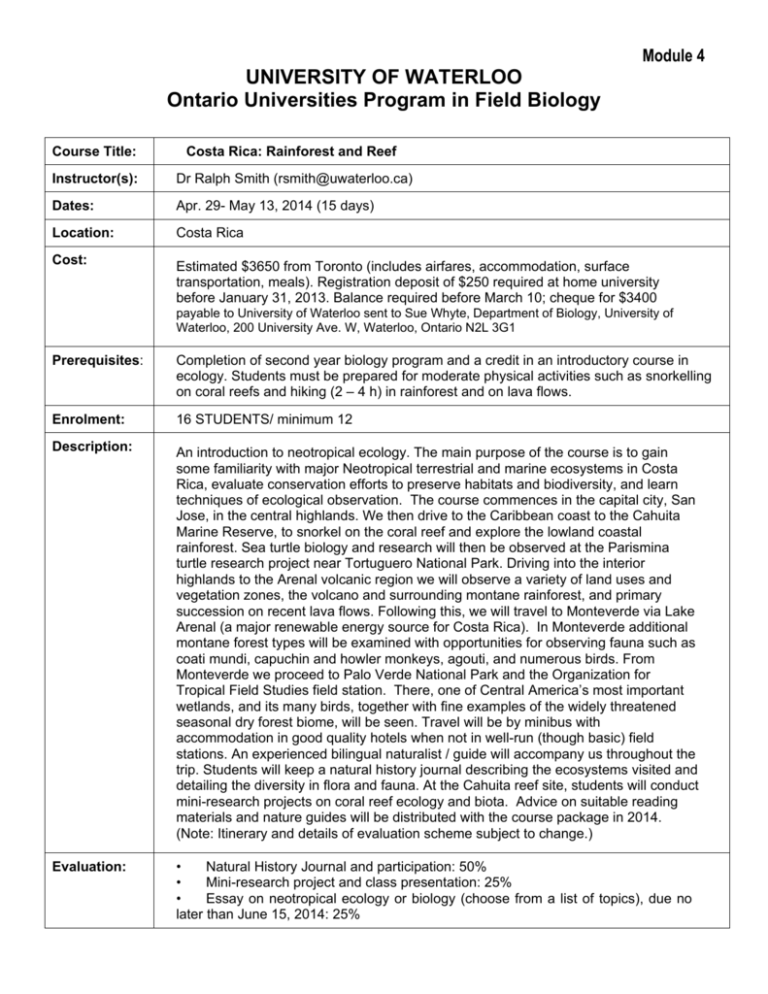
Module 4 UNIVERSITY OF WATERLOO Ontario Universities Program in Field Biology Course Title: Costa Rica: Rainforest and Reef Instructor(s): Dr Ralph Smith (rsmith@uwaterloo.ca) Dates: Apr. 29- May 13, 2014 (15 days) Location: Costa Rica Cost: Estimated $3650 from Toronto (includes airfares, accommodation, surface transportation, meals). Registration deposit of $250 required at home university before January 31, 2013. Balance required before March 10; cheque for $3400 payable to University of Waterloo sent to Sue Whyte, Department of Biology, University of Waterloo, 200 University Ave. W, Waterloo, Ontario N2L 3G1 Prerequisites: Completion of second year biology program and a credit in an introductory course in ecology. Students must be prepared for moderate physical activities such as snorkelling on coral reefs and hiking (2 – 4 h) in rainforest and on lava flows. Enrolment: 16 STUDENTS/ minimum 12 Description: An introduction to neotropical ecology. The main purpose of the course is to gain some familiarity with major Neotropical terrestrial and marine ecosystems in Costa Rica, evaluate conservation efforts to preserve habitats and biodiversity, and learn techniques of ecological observation. The course commences in the capital city, San Jose, in the central highlands. We then drive to the Caribbean coast to the Cahuita Marine Reserve, to snorkel on the coral reef and explore the lowland coastal rainforest. Sea turtle biology and research will then be observed at the Parismina turtle research project near Tortuguero National Park. Driving into the interior highlands to the Arenal volcanic region we will observe a variety of land uses and vegetation zones, the volcano and surrounding montane rainforest, and primary succession on recent lava flows. Following this, we will travel to Monteverde via Lake Arenal (a major renewable energy source for Costa Rica). In Monteverde additional montane forest types will be examined with opportunities for observing fauna such as coati mundi, capuchin and howler monkeys, agouti, and numerous birds. From Monteverde we proceed to Palo Verde National Park and the Organization for Tropical Field Studies field station. There, one of Central America’s most important wetlands, and its many birds, together with fine examples of the widely threatened seasonal dry forest biome, will be seen. Travel will be by minibus with accommodation in good quality hotels when not in well-run (though basic) field stations. An experienced bilingual naturalist / guide will accompany us throughout the trip. Students will keep a natural history journal describing the ecosystems visited and detailing the diversity in flora and fauna. At the Cahuita reef site, students will conduct mini-research projects on coral reef ecology and biota. Advice on suitable reading materials and nature guides will be distributed with the course package in 2014. (Note: Itinerary and details of evaluation scheme subject to change.) Evaluation: • Natural History Journal and participation: 50% • Mini-research project and class presentation: 25% • Essay on neotropical ecology or biology (choose from a list of topics), due no later than June 15, 2014: 25%
